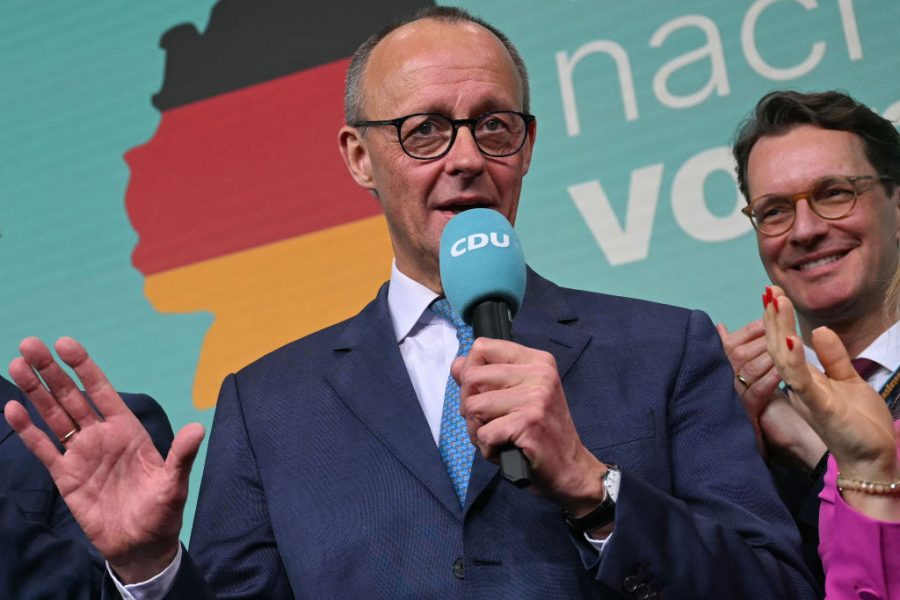As was widely predicted, Friedrich Merz’s Christian Democratic Union (CDU) has won Germany’s federal elections with around 28 per cent of the vote. For the first time since the formation of the Federal Republic in 1949, a far-right party – the Alternative for Germany (AfD) – has come second in a national election, winning an unprecedented fifth of the vote.
The AfD surge seen tonight will dominate politics for the next four years. The party has pulled off an historic upset in the face of near-universal hostility from other parties and the media. The far right benefited hugely from a campaign largely focused on migration, its core issue. A series of terror attacks committed by refugees and asylum seekers in the weeks before the vote ensured that it could not be otherwise.
The incoming chancellor faces ‘Herculean’ challenges
When discussion was not about migration, it was about how to deal with the AfD, a consequence of Merz’s rash decision to seek far-right votes for a resolution on immigration in January. Throughout, the party enjoyed unprecedented centrality to the national debate.
The AfD excels at appealing to those previously uninterested in politics: initial polling shows the party’s huge surge in support came overwhelmingly from previous non-voters, not from established parties. That suggests the turnout in this election – the highest since German reunification – was because of the AfD surge.
The CDU and Social Democrats (SPD) – the two Volksparteien which have dominated West German and then German politics since the second world war – have, on the other hand, continued their decline. Together, they amassed only around 45 per cent of the vote, the lowest in history. Traditional cleavages of class and religion have flattened. Like in other countries, voters are more fickle than ever, willing to cast away traditional loyalties in favour of less established parties.
The headline CDU win obscures the party’s relative weakness: its share of the vote was the second lowest since 1949. The result is a personal failure for Merz, whose courting of the AfD was meant to tempt anti-immigration voters back to the CDU. Instead, outrage led to a surge in support for smaller parties, costing the CDU and its potential coalition partners seats. The SPD suffered its worst result since 1887, slumping to around 16 per cent of the vote.
The CDU, then, may need to govern with a three-party coalition, despite hopes that it could scrape together enough seats to govern with just one other party. With the previous three-party coalition under Olaf Scholz riven by infighting and indecision (and having been punished at the polls for it), that is not a recipe for political stability.
A three-party government will make it that much harder to take the difficult decisions that Germany needs – particularly on urgent reform of deficit spending rules.
Negotiations will prove thorny. With Merz having pledged not to work with the AfD, the far right will likely be locked out of government. But his decision to seek their votes last month cost him trust with potential coalition partners on the centre left, MPs for the SPD have told me in recent weeks.
Regardless of which coalition is formed, by the next election Germans will have been governed by every major party over two parliamentary terms: the CDU, SPD, liberal FDP and Greens. They can expect to hear the AfD argue that the country has been failed by every major party; why not offer them a try?
But anti-fascism is still a motivating factor for many Germans. An 11th-hour surge for the Left, which until weeks ago was thought to be heading out of the Bundestag, can largely be attributed to a viral speech by its leader sharply criticising Merz’s courting of the AfD.
The incoming chancellor faces 'Herculean' challenges, as the newspaper Die Zeit put it. He will need to form a strong government from this fractured parliament, then do nothing less than fix migration policy, get the economy going and fill the vacuum left by the US withdrawal from Europe. If he fails, he risks going down in history as the chancellor who handed power to the first far-right German government since 1945.
Watch more on Spectator TV:






Comments